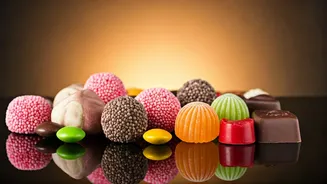Reframing Your Thoughts
The initial step in vanquishing guilt involves a critical examination of your thought processes. Often, feelings of guilt stem from negative self-talk
and unrealistic expectations. Take a moment to identify the specific thoughts that trigger your guilt. Are you criticizing yourself for a lack of productivity? Do you believe you should always be striving for improvement? Challenge these thoughts by questioning their validity. Are your expectations genuinely reasonable? Consider reframing your indulgence as a form of self-care or reward. Instead of focusing on the perceived negative aspects, such as the time spent or the expense incurred, highlight the positive elements, like the enjoyment you derived or the stress relief it provided. This shift in perspective can significantly alter your emotional response and diminish the grip of guilt. Remember, you deserve to experience moments of joy and relaxation without feeling burdened by regret. By consciously modifying your internal dialogue, you can begin to reshape your relationship with your guilty pleasures.
Cultivating Self-Compassion
Self-compassion acts as a powerful antidote to guilt. Many individuals are overly critical of themselves, amplifying any perceived shortcomings or indulgences. Practicing self-compassion involves treating yourself with the same kindness, understanding, and acceptance that you would offer a friend. When you find yourself feeling guilty, pause and acknowledge your emotions without judgment. Recognize that everyone experiences moments of pleasure and indulgence. Resist the urge to engage in self-blame or harsh criticism. Instead, offer yourself words of comfort and encouragement. Remind yourself that you are human and that occasional indulgences are perfectly normal. Imagine what you would say to a friend in a similar situation; offer yourself the same support. Self-compassion does not equate to complacency; rather, it empowers you to approach your actions with a balanced and realistic perspective. It creates space for you to learn from your choices without being consumed by negativity. By cultivating this practice, you can reduce the intensity of guilt and foster a healthier relationship with yourself and your indulgences.
Setting Healthy Boundaries
Establishing clear boundaries can be another way to manage guilt. Sometimes, guilt arises when our indulgences feel excessive or interfere with our responsibilities and goals. Reflect on how your guilty pleasures fit into your overall lifestyle. Are they taking up too much time, money, or energy? Do they negatively impact your health, relationships, or work? If so, consider setting some boundaries to ensure that your indulgences remain enjoyable and do not lead to adverse consequences. This could involve limiting the frequency or duration of your guilty pleasures. For instance, you might set a specific time each week for enjoying a particular activity or decide to allocate a specific budget for treating yourself. Also, it's essential to define your non-negotiables: the activities, commitments, and responsibilities you will prioritize. By setting boundaries, you can regain control over your indulgences, reduce feelings of guilt, and create a more balanced and fulfilling life. These boundaries help make your enjoyment a conscious choice rather than a source of anxiety.
Embracing Your Choices
Ultimately, the goal is to embrace your guilty pleasures without guilt. This is the culmination of reframing your thoughts, practicing self-compassion, and setting appropriate boundaries. Once you have addressed these foundational elements, you can give yourself permission to fully enjoy your chosen indulgences. Recognize that indulging in something you love is not inherently wrong or harmful, provided it is done in moderation and does not undermine your well-being. Focus on the positive aspects of your experience. Savor the flavors, appreciate the sensations, and appreciate the joy it brings you. Remind yourself that you are entitled to experience pleasure and that feeling guilty only diminishes your enjoyment. By fully accepting your choices, you transform your relationship with your guilty pleasures. You turn them from sources of potential guilt into moments of genuine enjoyment and relaxation. This shift empowers you to live a more balanced, happier, and guilt-free life.














